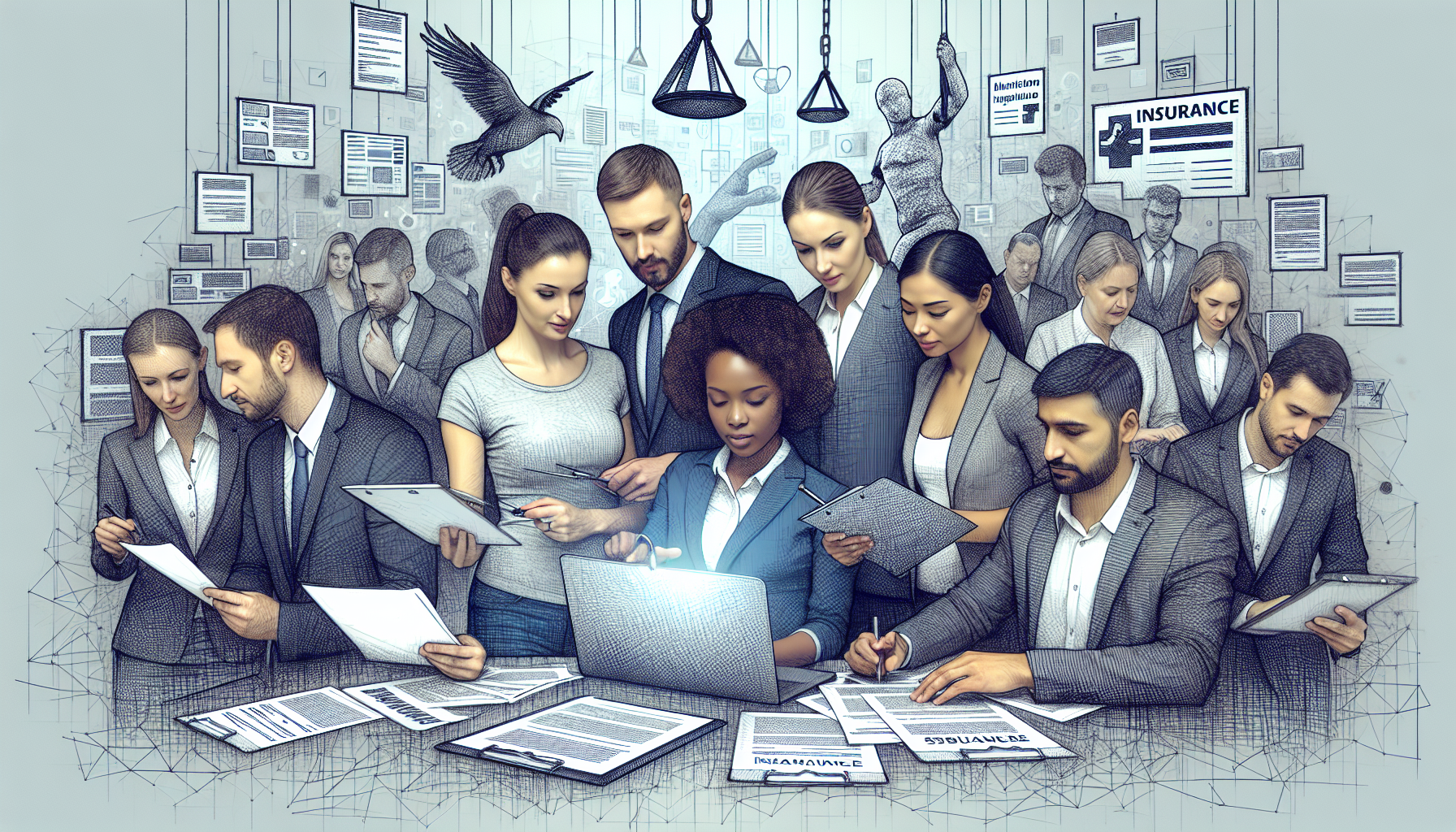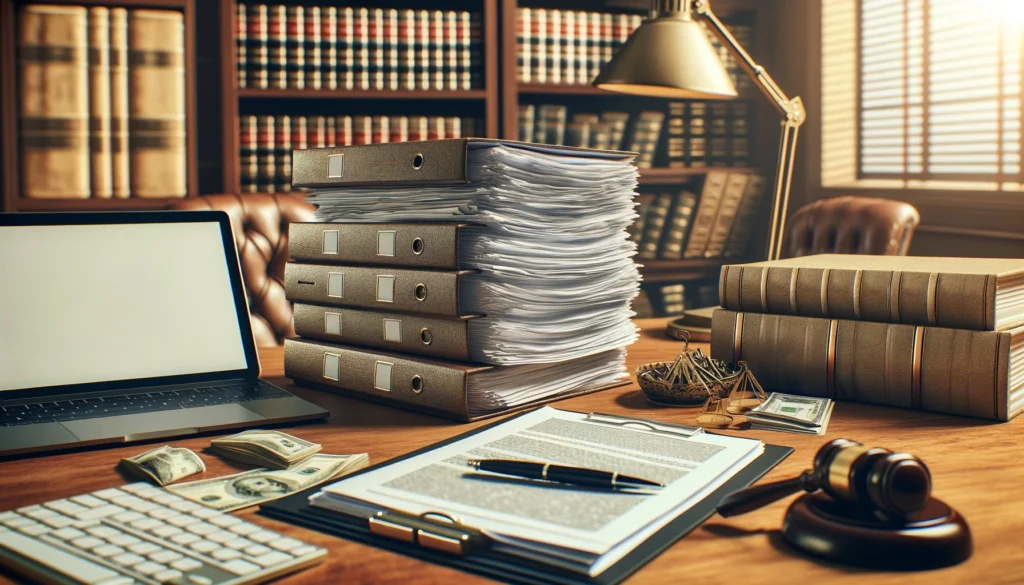
The Paralegal’s New Ally: Revolutionizing Insurance Policy Analysis
Paralegals often find themselves navigating a labyrinth of complex insurance policies while handling personal injury cases. This tedious task involves scrutinizing terms, comparing coverage details, and ensuring compliance with legal requirements. The raw hours consumed and the likelihood of human error are substantial challenges. Enter Large Language Models (LLMs) like ChatGPT, poised to transform these dynamics.
The advent and integration of advanced AI like ChatGPT offers a streamlined approach to insurance policy analysis, promising accuracy and efficiency. By leveraging such tools, paralegals can transcend repetitive administrative duties and focus on more substantive legal aspects.
Harnessing the Power: Setting Up ChatGPT for Success
Effective use of ChatGPT begins with proper setup and configuration. Here’s a concise guide to get started:
- Access the Platform: Navigate to the ChatGPT website or integrated application to register an account.
- Initialize the Model: Log in and initiate the model. Some services may require API keys for integration with existing case management systems.
- Customizing Settings: Navigate to settings where you can tailor the model’s behavior, such as response length and tone. Adjust the preferences for professional and detailed responses, ideal for legal analysis.
- Data Privacy: Ensure you configure privacy settings to comply with legal standards, safeguarding sensitive client information.
Optimizing these settings paves the way for seamless, precise insurance policy analysis. Now, it’s time to delve into prompt engineering, a critical element for extracting valuable insights.
Also read:
Prompt Engineering 101: The Art of Asking the Right Questions
Effective communication with ChatGPT hinges on crafting well-structured prompts. This process, known as prompt engineering, involves formulating queries that elicit the most accurate and relevant responses.
Prompt engineering boils down to specificity and context. Vague prompts yield generalized answers, while detailed prompts trigger precise information extraction. For instance:
- Basic Prompt: “Explain this insurance policy.”
- Nuanced Prompt: “Identify the exclusions and limitations in this personal injury insurance policy regarding medical expenses and rehabilitation services.”
Understanding the significance of this nuance is crucial:
– Specificity: The more detailed the prompt, the more targeted the response.
– Context: Include necessary context about the case or document.
– Clarity: Clearly framed questions minimize ambiguities, improving response quality.
By mastering prompt engineering, paralegals can unlock nuanced insights from insurance policies, setting the stage for comprehensive analysis.
Also read:
Unlocking Efficiency: Nuanced Prompts for Comprehensive Analysis
Harnessing nuanced prompts opens a treasure trove of detailed responses from ChatGPT. Here are some sophisticated techniques and examples:
- Comprehensive Clause Analysis:
- Example Prompt: “Break down the conditions under which the insurer can deny coverage for bodily injury claims in this policy.”
- Coverage Assessment:
- Example Prompt: “Evaluate the policy’s coverage limits for surgical expenses following a personal injury accident. Specify if sub-limits on particular treatments exist.”
- Comparative Analysis:
- Example Prompt: “Compare and contrast the rehabilitation benefits provided under Policy A and Policy B for spinal injuries. Focus on duration and type of covered services.”
Refining prompts to hone in on specifics involves:
– Layering Questions: Begin with a broad question and follow up with detailed subsets.
– Feedback Iteration: Adjust subsequent prompts based on the responses to achieve greater precision.
– Scenario Application: Incorporate hypothetical scenarios relevant to the case being handled.
Through such refined prompting, paralegals can acquire exhaustive knowledge tailored to each unique case, transforming their efficiency and effectiveness.
Also read:
Streamlining Common Tasks: Leveraging ChatGPT for Daily Operations
Adopting ChatGPT into daily operations can revolutionize routine paralegal tasks:
- Summarizing Documents: Utilize ChatGPT to condense voluminous insurance documents.
- Example Prompt: “Summarize the main provisions and exclusions of this 50-page insurance policy document for a personal injury claim.”
- Automating Forms: Generate standard forms and correspondence swiftly.
- Example Prompt: “Draft a demand letter to the insurance company for coverage of medical expenses under Policy X.”
- Client Management: Organize and manage client information efficiently.
- Example Prompt: “Compile a summary of client Smith’s insurance policy details, focusing on claim history and current benefits.”
By automating these tasks, paralegals can save precious time and reduce monotonous workloads, allowing a greater focus on substantive legal work.
Also read:
Ensuring Accuracy: Validating and Cross-Referencing Information
While ChatGPT can significantly enhance efficiency, verifying output accuracy remains critical:
- Best Practices:
- Cross-verify information against official insurance documents.
- Use multiple sources to corroborate ChatGPT-generated data.
- Government and Legal Databases: Reference reliable databases for comprehensive validation.
By meticulously cross-referencing ChatGPT’s responses, paralegals can ensure the utmost accuracy and reliability in their legal analysis.
Also read:
Future-Proofing Your Skills: Continuous Learning and Adaptation
To stay ahead, continuous learning about LLM advancements is essential:
- Engage in training sessions and webinars on the latest AI and LLM developments.
- Join professional forums and communities centered on legal tech innovations.
- Explore resources like online courses and literature on AI tools and their legal applications.
An ongoing commitment to learning ensures paralegals can seamlessly adapt to evolving technologies and enhance their professional skillset.
Also read:
Closing the Loop: Maximizing the Impact of ChatGPT in Your Workflow
Integrating ChatGPT into daily workflows promises unparalleled enhancements in efficiency and precision. By exploring customized approaches and continually refining prompt techniques, paralegals can transform their operational landscape. Embrace this powerful tool and pave the way for a more streamlined, effective legal practice.


